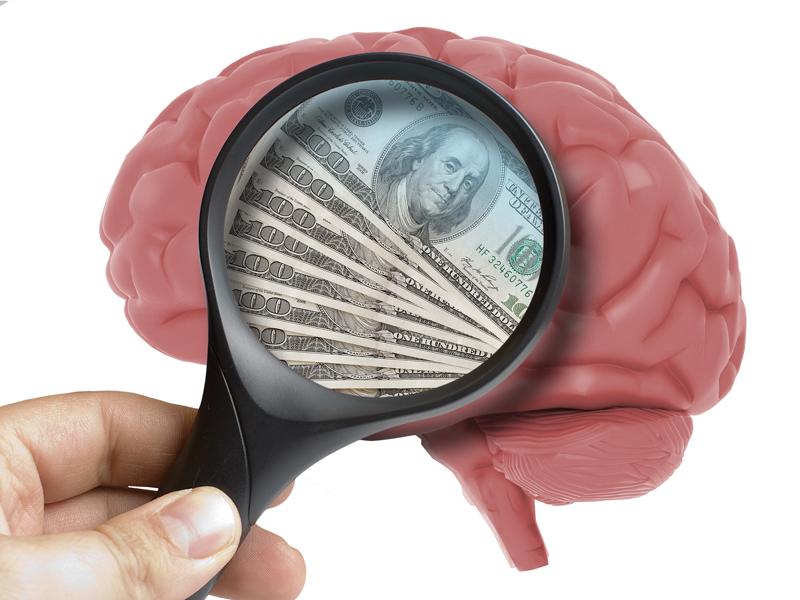How Our Psychological Makeup Impacts Our Financial Decisions
I’ve consulted with a great many laundromat owners over the years. And nearly all of them have been preoccupied with their financial decisions – either those that had been made in the past or those that the store operators anticipated making in the future.
If recalling the past, many of these business owners confess to feeling a bit depressed or guilty over what have turned out to be bad decisions. And, if they are worried about their future financial decisions, they typically are somewhat anxious about what is yet to come.
Therefore, my intent with this article is to attempt to relieve you of past regrets and anxiety over the future when it comes to making financial decisions within your business – or even in your personal life – which hopefully will make you a happier, more self-assured person.
With that said, I’d like to introduce you to the blossoming and fascinating field of behavioral economics. My goal here is to explain how behavioral economics differs from conventional economics, as well as discussing how the two relate. Regular readers of this column surely will recall that I have alluded to this timely topic in the past.
Make no mistake, plenty of what conventional economics has to offer is quite valid and most certainly useful. Behavioral economics simply adds more tools to your economic toolkit – thereby helping you make more sense of why laundromat owners (and any businessperson, for that matter) often tap in completely non-financial reasons when making crucial decisions about money.
The field of behavioral economics came into being due to significant research advancements in neuroscience and psychology. These advancements have enabled scientists to study brain activity, including neurotransmitter chemicals flowing within the central nervous system, with a high degree of accuracy.
What’s more, this can be done while individuals are undergoing specific experiences, such as (but not limited to) reading your print advertisement or making real-world financial decisions.
Some interesting new and highly valid research discoveries are demonstrating that people typically don’t behave the way conventional, traditional economic principles assume they should when it comes to making financial decisions.
For example, standard economic theory states that people – especially business owners – are all maximizers when it comes to money. Also, it assumes that they all essentially are hyper-focused on maximizing their individual level of material well-being to increase their net worth and, thus, their level of happiness.
However, behavioral economics challenges the view that all people are wealth maximizers and that those who don’t maximize their wealth are somehow irrational or abnormal.
The behavioral economics approach also maintains that not all individuals have the capacity or the need to maximize wealth. In fact, behavioral economics accepts that both the business and non-business worlds are awash with non-maximizing behaviors, at least as defined by conventional economists.
An appropriate analogy that you surely can identify with is the fact that, since there is no reason to suppose every laundromat owner is challenged by an optimally efficient competitor, survival requires merely meeting the efficiency level of the competition – which is a commonly occurring event.
Another precept of behavioral economics is that business owners don’t have access to perfect knowledge on which to base financial decisions. They can’t accurately know how their financial decisions will impact the future, or how they will actually think or feel down the road.
The phrases I’ve heard so many times from the store owners I’ve worked with – such as, “Who could have seen that coming?” or “I could just kick myself for the decision I made back then” – help to illustrate this point quite well. Been there, done that?
Behavioral economists also have found an abundance of evidence that suggests most people most of the time behave in a fashion that falls far from the benchmark for “correct financial behavior,” as spelled out by conventional economics.
In fact, most people use heuristics in their economic behavior and decision making, which is defined as proceeding to a solution by trial and error, or using rules that are very loosely defined. “Flying by the seat of one’s pants” also is a pretty accurate description, I would assume. This is just a fact of life.
So, what’s the take away?
The key point of the aforementioned is for you to carefully consider how much of your behavior relating to money is actually influenced by non-traditional economic rules and is, in fact, controlled by your individual psychic economy.
Here’s something to ponder: behavioral economics research certainly affirms that people are averse to loss, and that aversion greatly affects the decisions they make. However, what we have learned is that the brain reacts more negatively to a given loss than positively to the same amount of gain.
As a result, if you simultaneously win a dollar and lose a dollar, you are – according to the “theory of loss aversion” – worse off because your level of happiness falls even though you are no worse off financially.
Hence, it’s likely that you sacrifice economic gains to avoid economic loss. This dynamic is, for example, in effect when you are planning a costly marketing campaign for your laundry business.
What about the hiring practices at your laundromat? You may be interested to learn that behavioral economics also deals with your subjective evaluations of prospective job applicants, because in the final analysis, you have to decide how much to pay these new employees.
Behavioral economics research has proven that job candidates often greatly diminish their chances of landing their desired position if they answer the last interview question poorly.
When objectively looking at the interview as a whole, one person may be the best candidate and yet may lose out to someone else whose overall interview performance was less than stellar, but who answered the last question in a more impressive manner.
This rings true scientifically because we tend to remember the beginnings and endings of events we’ve experienced far more so than recalling what actually transpired in the middle. This certainly applies to job interviews, as well as to even the movies we’ve watched.
If you read about and utilize the research findings of behavioral economics, you will have added another dimension to your laundry management skills, and thereby have taken an important step to becoming the hero of your day-to-day drama.
After all, business management growth comes from any new and innovative thinking, which in turn moves you toward a larger and expanded paradigm. And that’s the direction in which we all should be headed.













